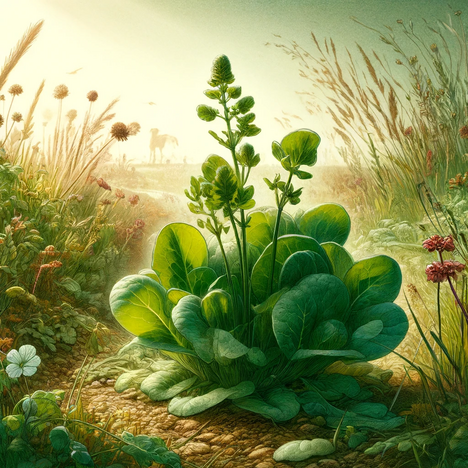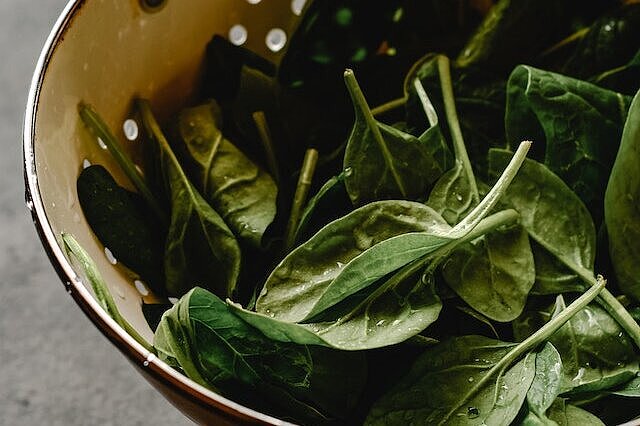Small sorrel

Little sorrel, often overlooked in meadows and gardens, holds a secret that can be both beneficial and tricky for our dogs' diets. This article is dedicated to shedding light on this humble plant, its properties, potential benefits and risks when it becomes part of our four-legged friends' diet.
What is common sorrel?
Sorrel(Rumex acetosella) is a widespread wild plant known for its heart-shaped leaves and characteristic sour taste. The plant belongs to the knotweed family (Polygonaceae) and often grows in meadows, along roadsides and in sparse woodland. The sour taste is due to the high content of oxalic acid, which also forms the basis for the discussion about the suitability of sorrel as food for dogs.
Benefits of wood sorrel for dogs
Natural source of vitamins
Sorrel can be a source of vitamins, especially vitamin C. Vitamin C is an important antioxidant that can strengthen the immune system and contribute to a dog's overall health.
Digestive aid
The fiber contained in the plant can aid digestion and help regulate bowel function. This can be particularly beneficial for dogs prone to digestive problems.
Risks and precautions
Oxalic acid content
The high oxalic acid content in sorrel can cause problems in dogs, especially if consumed in large quantities. Oxalic acid can impair the absorption of calcium and contribute to the formation of kidney stones.
Potential toxicity
In sensitive or allergy-prone dogs, sorrel can cause allergic reactions or other negative health effects. Symptoms of such a reaction may include skin irritation, diarrhea or vomiting.
Inclusion in a dog's diet: yes or no?
The question of whether sorrel should be included in a dog's diet requires a balanced consideration. While the plant may offer certain health benefits, it is important not to underestimate the potential risks. The decision should be made on an individual basis, taking into account the dog's specific health and tolerance.
Recommendations for dog owners
- Moderation: Sorrel should only be fed to dogs in very small quantities, if at all.
- Observation: Pay close attention to your dog's reaction after eating the plant and seek veterinary help immediately if there are signs of intolerance or poisoning.
An herb with two sides
Sorrel, when eaten with care, can enrich the diet of some dogs. However, the potential risks, especially the high oxalic acid content, require careful handling. Your dog's health and well-being should always be your priority.
If you notice any signs of hypersensitivity or poisoning in your dog, you should see your vet immediately. We are not a substitute for a vet, but we try to be as accurate as possible. Every dog reacts differently and we recommend you get a second opinion or consult your vet if in doubt.
Stay healthy and take good care of your four-legged friend!😊
Similar to Small sorrel
Meadow sorrel(Rumex acetosa) is a widespread herbaceous plant that can be found in meadows, gardens and along roadsides. It is known for its elongated, lush green leaves and small, reddish flowers....
Spinach is a plant from the goosefoot family that originally comes from Asia. It has been cultivated and eaten as a vegetable for centuries. Spinach has large, dark green leaves that are rich in...
Swiss chard is a plant that originally comes from the Mediterranean region. It has been used as a food and medicinal plant since ancient times. Swiss chard has large, dark green leaves and thick...
Purslane is a plant from the purslane family that originally comes from Asia. It is also known as postelein or winter purslane and often grows wild along roadsides or in fields. Its stems and leaves...



